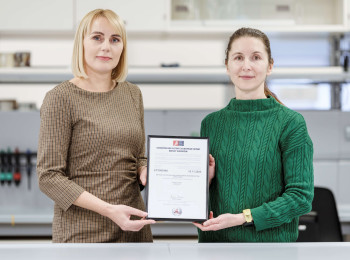As early as in July, the Republic of Lithuania Ministry of Environment issued the consent to carry out tests simulating a crude oil spill in the port’s water area upon evaluating the information provided by the KU researchers and the efforts of KSSA to manage the port’s activities in the direction of the European Green Deal. The organisers of the exercises were obliged to ensure maximum safety, so that pollutants do not spread further from the test site which was enclosed by oil booms, and to act promptly to control the simulated spill.
In accordance with the approved scenario of the scientific research civil safety exercise to neutralise oil pollutants, observers from the Department of Environmental Protection and the Environmental Protection Agency participated in the exercise, water samples for tests were taken before simulating a crude oil spill and after its neutralisation by specialists of an independent laboratory, in this case of Klaipėdos vanduo AB. The results of the test will become an important indicator of the effectiveness of the tested technology.
The uniqueness of the innovation that successfully passed the test in the scientific research laboratory this spring is that oil products spilled into waters are neutralised using a sorbent of natural origin –hydrophobised straw with oil-degrading microorganisms extracted from the environment of the Baltic Sea. This is an environmentally friendly technology, created using inexpensive, natural materials. The technology has already been patented in Lithuania, and KU has submitted a priority application to the European Patent Office.
The head of the KU research team dr. Tatjana Paulauskienė says that the process of creating an innovation, from the idea to its practical tests, has been going on for two years. During this time, the team working on this technology has solved a number of challenges: from selecting the most effective materials to their presentation and production. “This stage is very significant for us, as it will make it possible to determine the effectiveness of the said biotechnology when applying it in real-life conditions. Practical testing will show the superiority of the technology over analogues currently on the market and will enable a more accurate assessment of the commercialisation potential,” said dr. Paulauskienė. Incidentally, in order to develop this innovation, KU founded a startup Inobiostar, whose mission is to find ways to enter the market.
“It was more than a year ago that we learned about the fact of Klaipėda University developing an innovative biotechnology for the neutralisation of oil pollutants. First the tests were carried out in the laboratory, by gradually increasing amounts of oil. Finally, the day has come when the team was ready to demonstrate the biotechnology they have developed in real-life conditions. I believe that the project will continue and in the future this technology will be used not only in the port of Klaipėda, but also all over the world,” said Algis Latakas, Director General of Klaipėda State Seaport Authority, who closely followed the progress of today’s exercises.
“A lot of work, a lot of intellectual resources have been put into this project. The team have carried out extensive research in our own as well as in national and foreign laboratories. They just could not fail! This day is very important for us, for Klaipėda University, because we can demonstrate the general public and the business people of the maritime sector how powerful scientific thought is, and how technological revolutions are born from seemingly simple things”, – KU Rector prof. dr. Artūras Razbadauskas had no doubts about the sucess of this research project.
An international team responsible for the development of the technology included Tatjana Paulauskienė (project leader, head of the technological group), dr. Marija Kataržytė (head of the microbiological group), dr. Žilvinas Kryževičius, dr. Jochen Uebe, dr. Donata Overlingė, Eglė Radzevičė, dr. Lyubov Shevchenko.
After the exercises-tests, dr. Tatjana Paulauskienė gave a succinct assessment: “Fine”. More detailed summaries will be published after receiving the results of the water sample tests and comments from other interested agencies.
***
Interesting facts:
- Microorganisms (fungi and bacteria) used for oil degradation and extracted from the environment of the Baltic Sea, in the natural environment are not visible to the naked eye due to their size, but in the laboratory, in a special nutrient medium, they can form colonies up to 2-90 mm which are already visible without a microscope.
- Microorganisms immobilized in a sorbent have several properties: they release bioactive substances that reduce the tension of the oil film on the water surface, which makes it easier for oil to be absorbed by sorbents and accelerates oil decomposition.
- 1 g of material can absorb about 5 g of oil pollutants.
- Oil pollutants are neutralised with the help of oil-degrading microorganisms to carbon dioxide (CO2) and water (H2O).
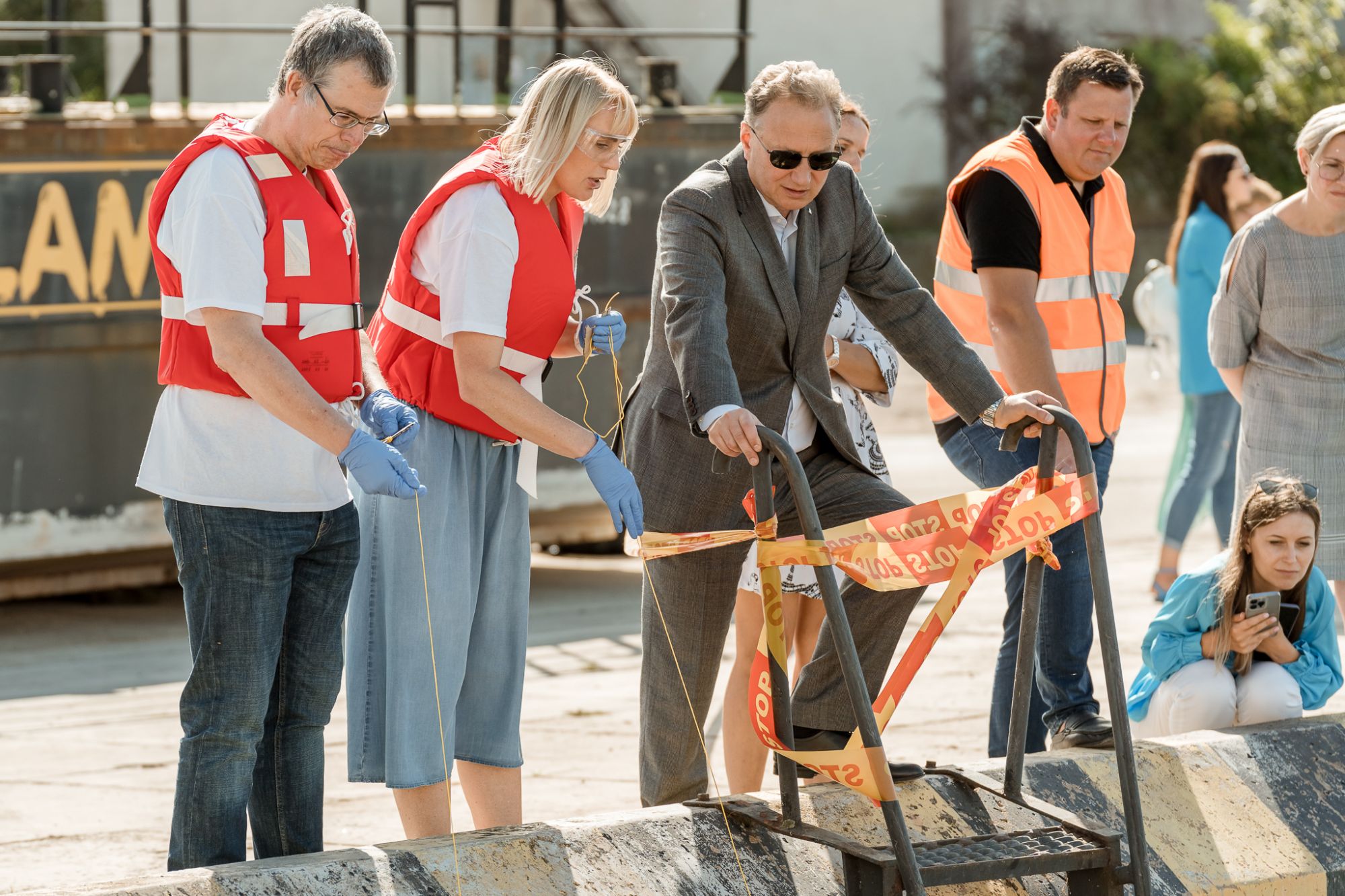 |
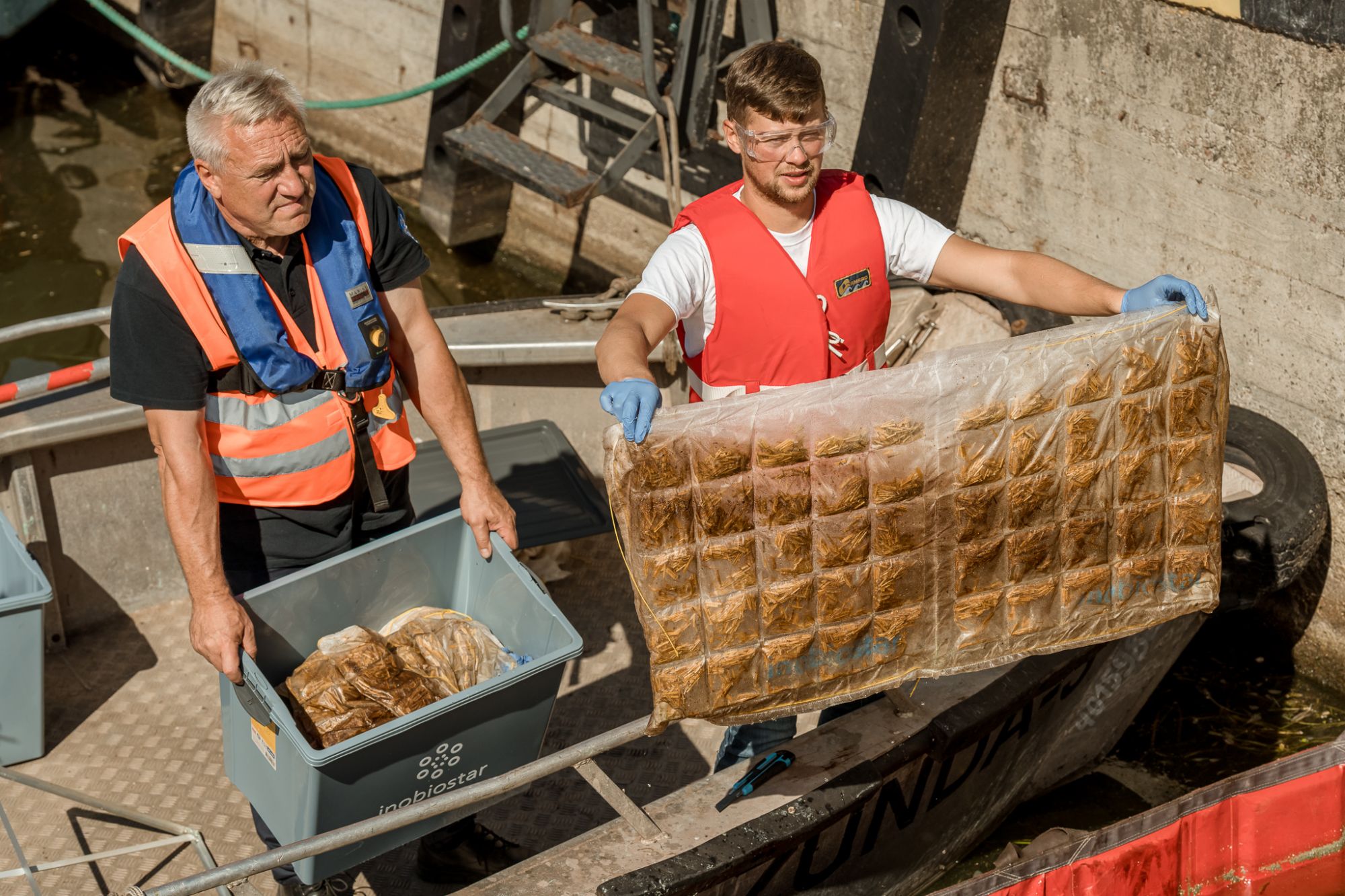 |
|
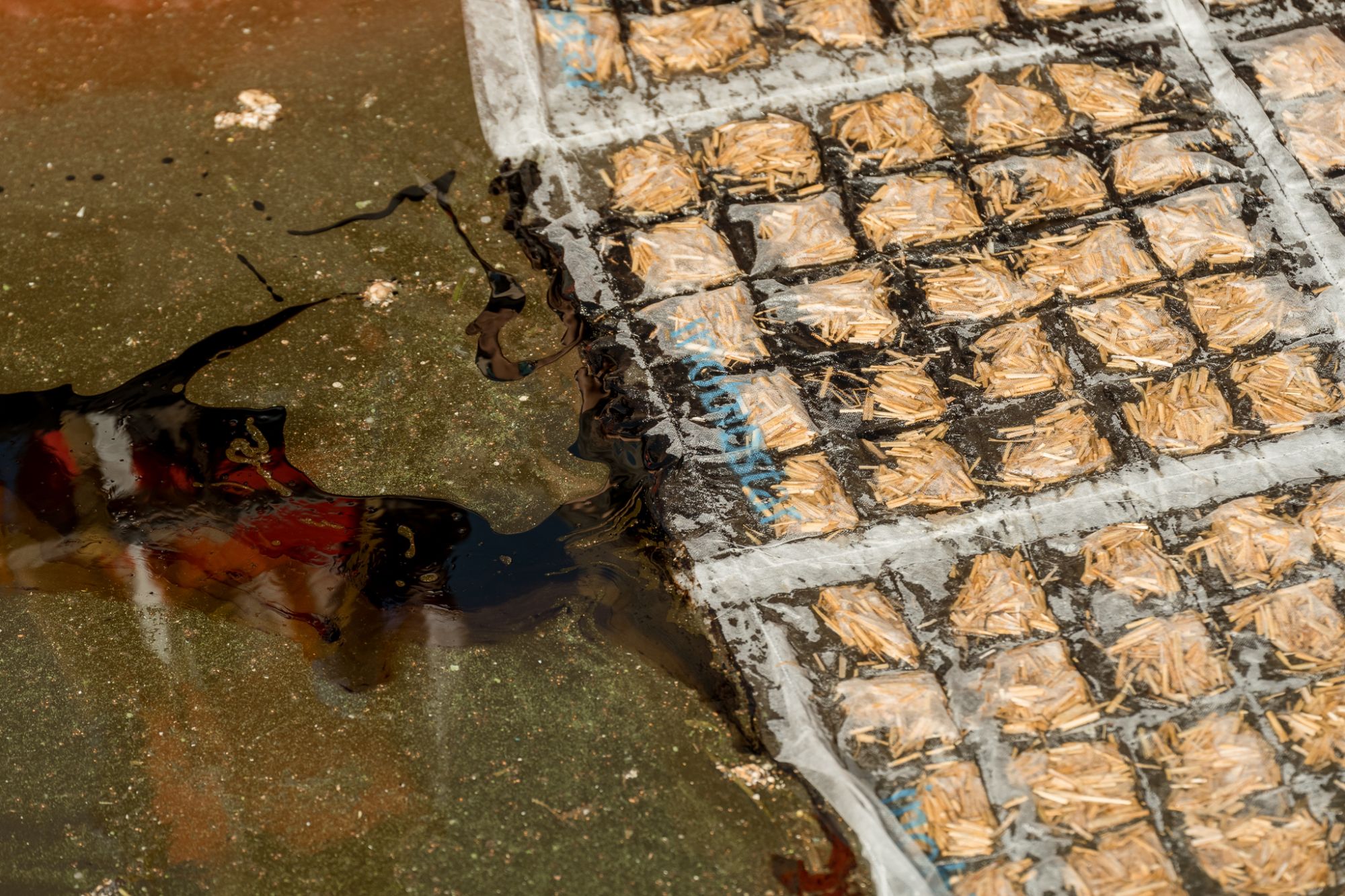 |
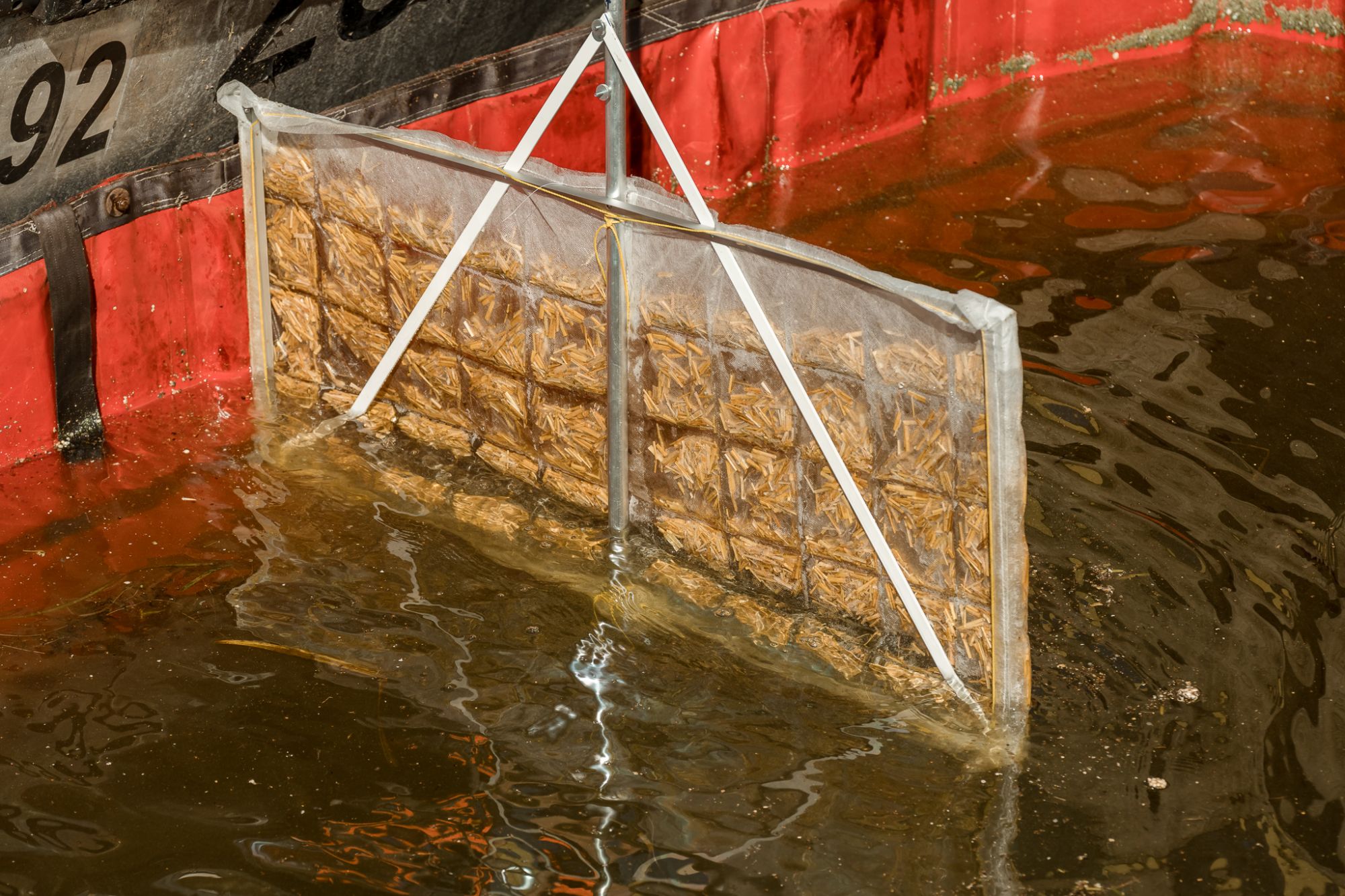 |







